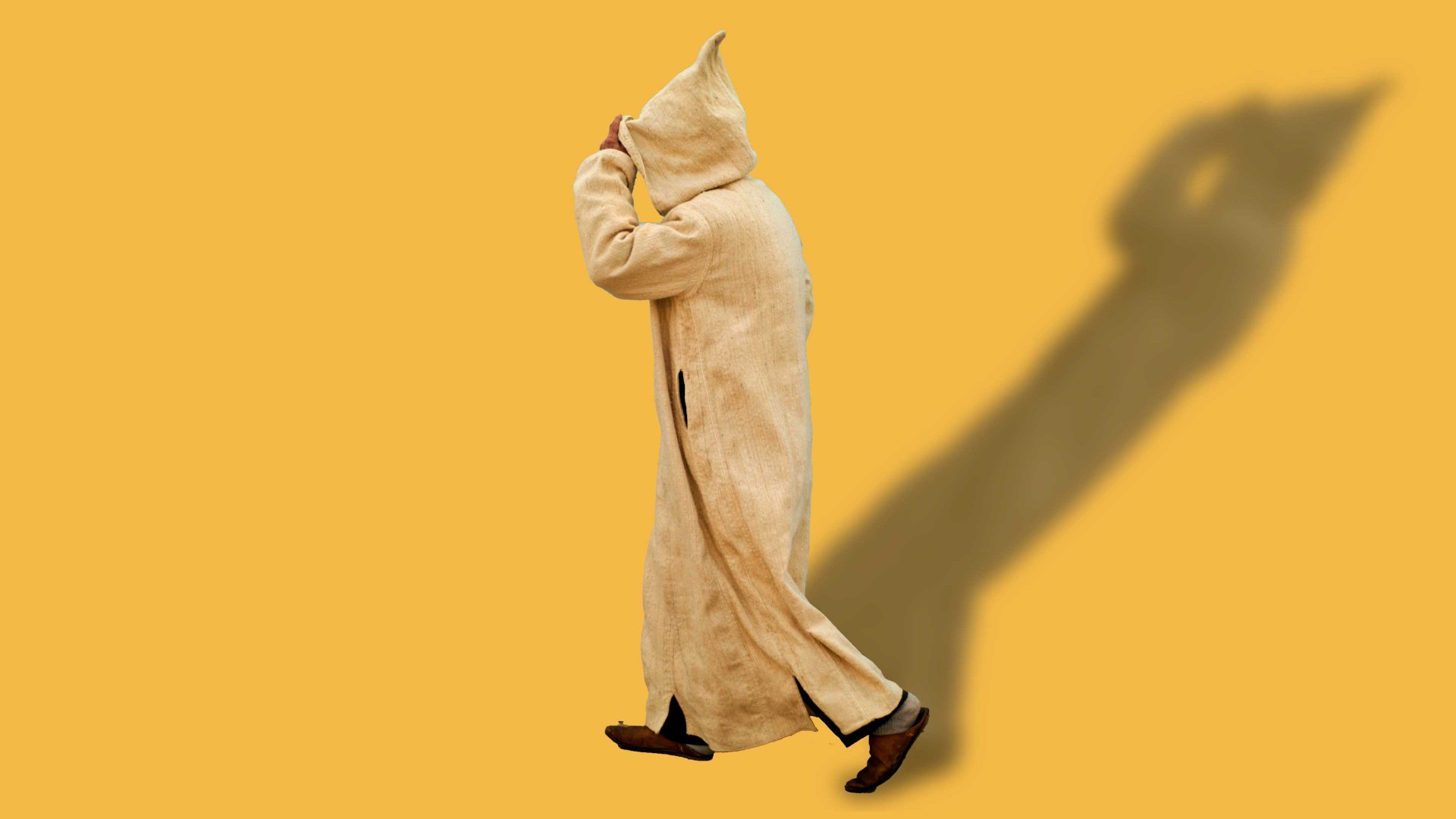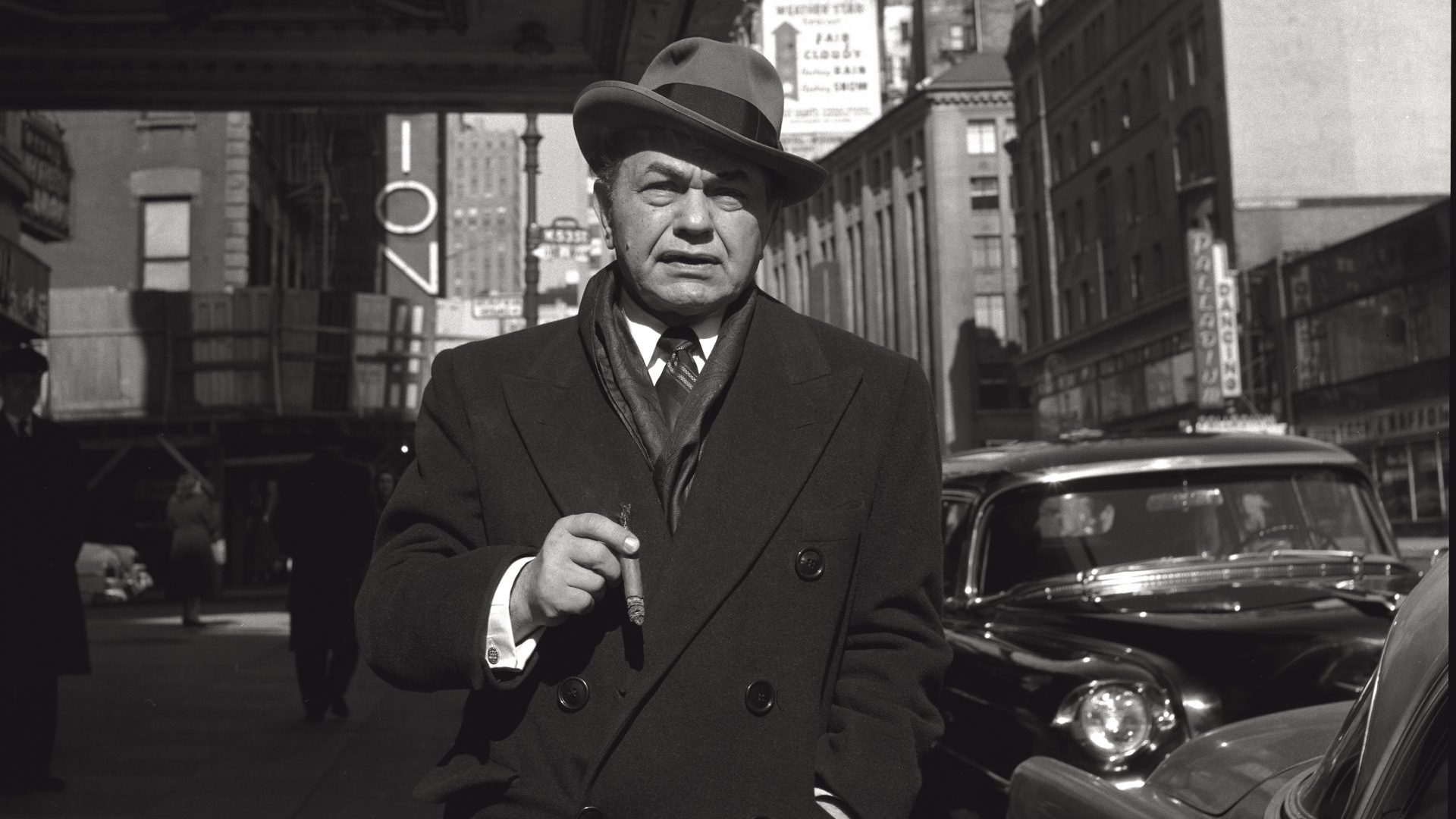Last week saw MM standing in Sainsbury’s Nine Elms with a 25k bag of Homefire smokeless fuel in one hand and the folds of his Moroccan djellaba in the other. This week, the protracted cold spell has led to him ordering his winter fuel online – but rest assured: he’s still in the djellaba.
And beneath it a long flannel kameez of Pakistani origin. I’ll stop with the illeism at this point – although wearing robes, in public, in England, does make you feel just a little bit hieratic: as if you’ve been cut out of a momentous Biblical scene and pasted into a whole series of mundane contemporary ones. The first couple of times I went out without trousers I did go full commando; and I will be again once the temperature rises, but in the meantime, I’ve equipped myself with a pair of black silk boxers.
Frankly, every possessor of male genitals in the country should be wearing these. And equally frankly, it would also do them a lot of good to go out in a dress for a few days, and feel the wind of change it occasions. I actually believe after a month of dress-wearing that my entire sense of being-in-the-world has been shifted. It helps, of course, that a lot of men of Middle Eastern, African and South Asian origin who live in my area, also don’t wear trousers – or at least, not conspicuously so.
No doubt, out in the sticks – say, in Misogyny-on-the-Marsh and Homophobiabury – my apparel would raise an eyebrow, possibly even a shaken fist; but here, no one – I repeat no one – has batted an eyelid. Moreover, people of colour, in particular, now seem to look at me differently, and speak to me more readily. My theory about this is that if I’m not wearing trousers, no matter the fairish skin and blueish eyes, I still can’t possibly be a member of the largely white power elite.
Because they never dress up like that – unless they’re ordained ministers in the state church – in which case, as goodness knows… anything goes… Or hog-whimperingly drunk army officers. At any rate, apart from pulling off some sort of Lawrence of Arabia – or indeed “Sir” Grayson Perry – shtick, being sans-culottes is hardly going to bring you money and power. Instead, I had the rare pleasure of Dino, the Yoruba guy who trims my beard in a tiny booth in a busy subdivided shopfront in “Little Nigeria” (East Peckham, to you, squire), say to me, “You’re not English.” This, as a statement, not a query.
Why pleasure? Because this was the proof that wearing the djellaba really was as transformative externally, as it felt existentially. I left Dino’s booth striding yet more purposefully: my bare legs smoothly moving beneath their mobile woolly tent – and looking around me at trousered men (and women), with the somewhat superior sort of compassion affected by those who know better.
Clothing shouldn’t be some sort of spacesuit you put on before leaving your temperature-controlled domestic space station for eight hours toiling in the dark vacuum of the city; any more than all transportation should be via pods full of amniotic fluid. Contemporary western male garb for the winter (which is effectively unisex anyway), consists entirely of synthetic materials puffed up into such a bizarre semblance; and just as with the cars that choke our thoroughfares, these costumes are devised to cosset us, and separate us definitively from the environments we live in.
Whereas, when you wear a djellaba and a kameez, it all hangs out – and so do you: the transition from inside to outside being effected, as it were, all the time, simply by your own movements as you swish about the place. Yes: I feel freer in robes, and better integrated with the world of winds and rains (my own included); and even if the health problem that made the transition necessary for reason of simple comfort, were to somehow be resolved, I don’t think I’ll be pulling back on my old blue jeans anytime soon.
Because the truth is, I’d been wanting to wear a dress for years – and had been bothering the family with lengthy descriptions of its cut, the material to be used etc. Why hadn’t I gone ahead with this project? For the same reason as 99.9% of the penised individuals reading this piece: for fear of appearing to be either a) Less than manly b) A cross-dresser or c) “Sir” Grayson Perry.
But my bold new message for 2024 is that we can confront this prejudice together, and so move towards a happier, and more unconstrained future.



